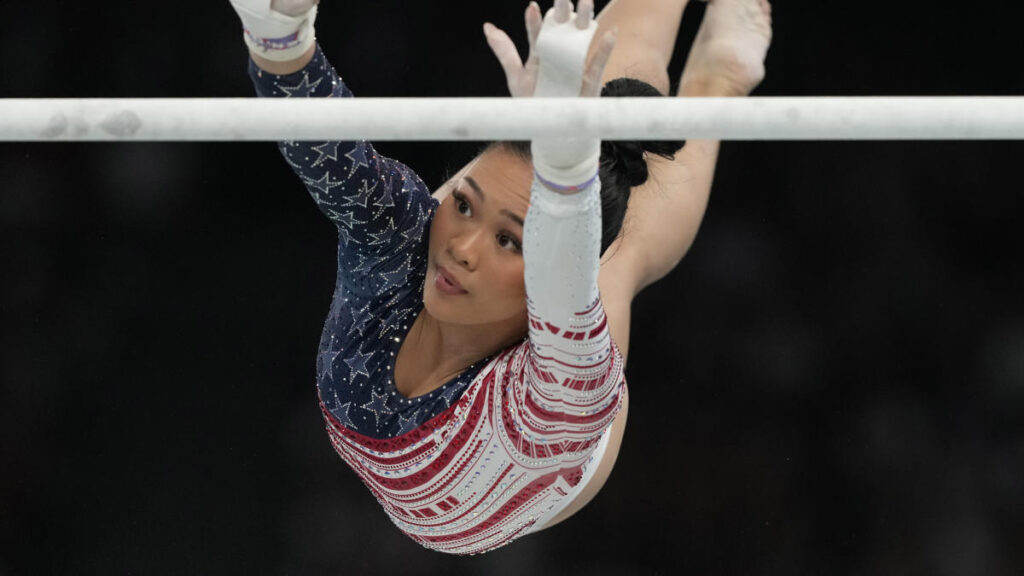PARIS — Noah Lyles didn’t hesitate when asked what inspired his epic victory in the incredibly close and incredibly dramatic Olympic men’s 100-meter final on Sunday night.
The newly crowned world’s fastest man rummaged through a large bag and then showed off the Tokyo bronze medal he had packed before leaving for Paris last month.
“I was thrilled the moment I saw this in my hands,” Lyles said.
For Lyles, the medal is not a prize he earned but a symbol of the worst moment of his athletic career. He brought it with him to the Stade de France in recent days because the sight of it instantly motivates him.
Lyles won his first career Olympic gold medal Sunday night in a photo finish, coming from behind to edge Jamaica’s Kishane Thompson by five thousandths of a second. He is the first American to win the men’s 100 since Justin Gatlin 20 years ago.
This could be the start of a transformative week for Lyles in Paris if all goes according to plan. He is a heavy favorite to win 200-meter gold this week and is the obvious choice to run the final leg of the men’s 4×100-meter relay. Lyles says he could even convince himself to run a leg of the 4×400-meter relay and give himself a chance at a rare fourth gold medal at the same Olympics.
The starting point for all this success goes back three years. Lyles cannot win gold in Paris if he has not settled for bronze in Tokyo.
As the Tokyo Olympics approached, Lyles wasn’t in the best of spirits. The depression he’d suffered as a child when he was bullied had returned, fueled by the isolation of the COVID-19 pandemic, the killing of George Floyd and the uncertainty about when or if the postponed Tokyo Olympics would take place.
Lyles only qualified for the Tokyo Olympics in 200, not 100. When he arrived to empty stadiums, with strict COVID protocols and minimal support from family or friends, his mental health deteriorated further.
On the starting line before the men’s 200m final, he remembers thinking: “This is not fun. This is not it.”
Lyles, then 24 and already the world’s leading 200-meter runner, finished third in the 200 meters that day, only his second career loss at that distance as a professional. He couldn’t hold on to a slender lead around the bend and let Canadian Andre De Grasse and fellow American Kenny Bednarek pass him.
When Lyles spoke to reporters that night, he called his bronze medal “boring.” He sobbed as he talked about his own mental health issues, the antidepressants that made him gain weight, and the need to stop taking them to prepare for the Olympic trials.
Lyles went home thinking, “I have to change, I have to evolve.” He credits going back to therapy with making the biggest difference. Therapy helped him overcome his crippling fears of returning to the track and turned the disappointment of Tokyo into fuel for future success.
Whereas before he might have felt pressure to live up to other people’s expectations or been anxious before a big race, he says he now tries to frame things as if he’s “extremely curious about what’s going to happen.”
“That’s how my therapist and I say it,” he says, smiling. “I’m curious about what I’m going to do. How am I going to do it?”
The opportunity Lyles was looking for didn’t come years, or even months. It took weeks. Just a month after the Tokyo Olympics, Lyles ran a record time in the 200m at the Prefontaine Classic. He went on to break Michael Johnson’s American 200m record in 2022 and complete a rare sprint hat-trick at the world championships last year.
Everything Lyles has accomplished has been three years in the past.
“I’m like, ‘Yeah, I think I’m doing enough,'” Lyles said earlier this summer. “Then I turn around and look at the medal and say, ‘Okay, back to work.'”

